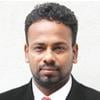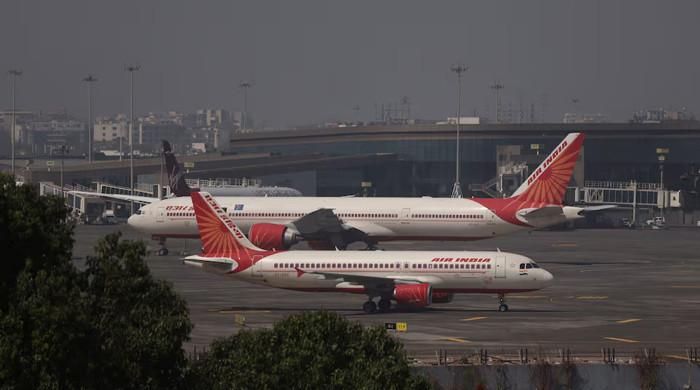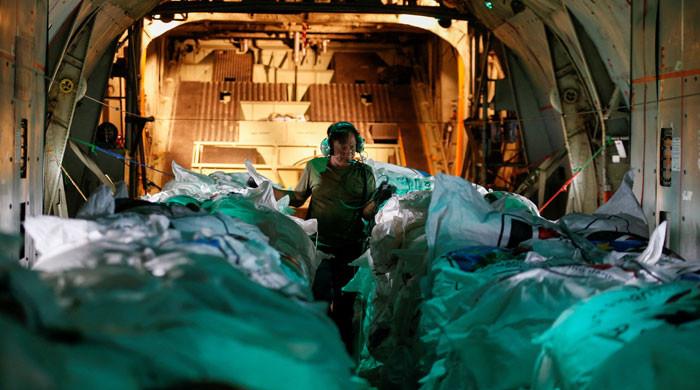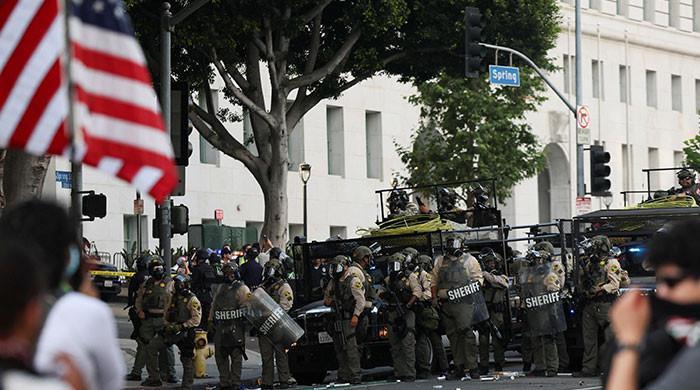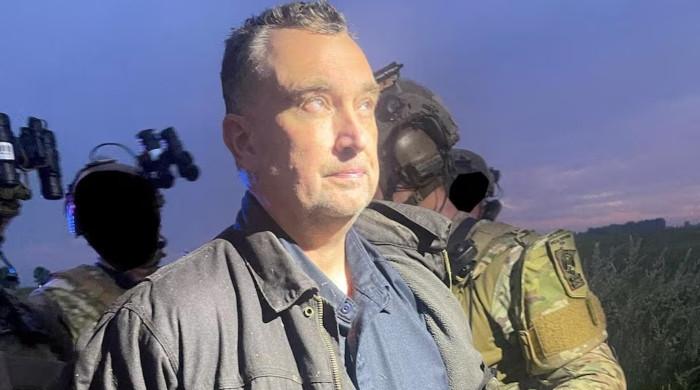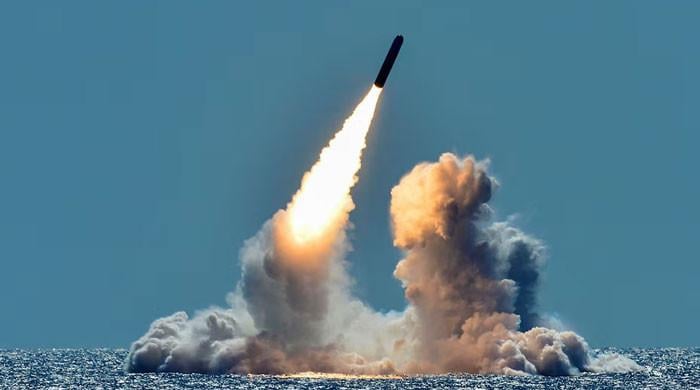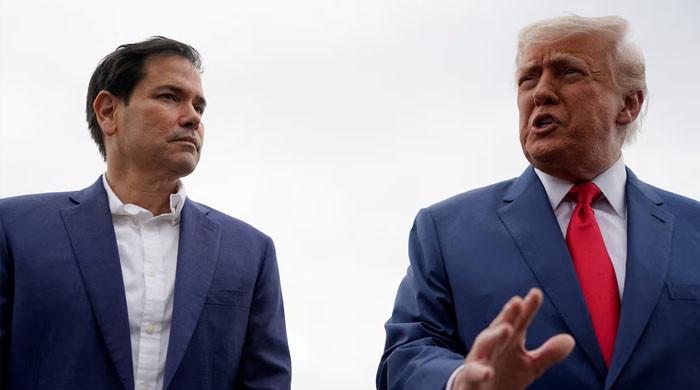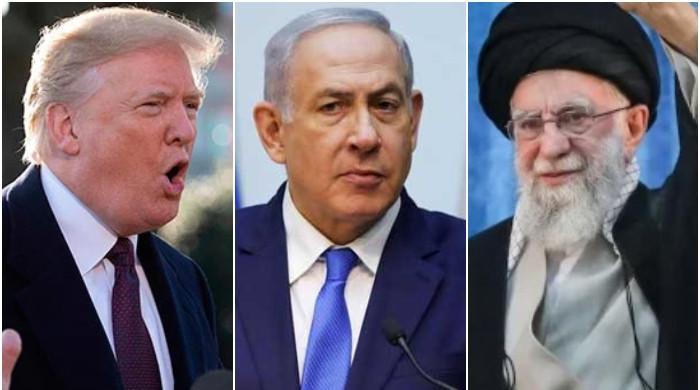The state of journalism in South Asia
In recent years, safety of journalists in South Asia has come under severe threat, with numerous instances of violence, persecution, and even murder
May 29, 2024
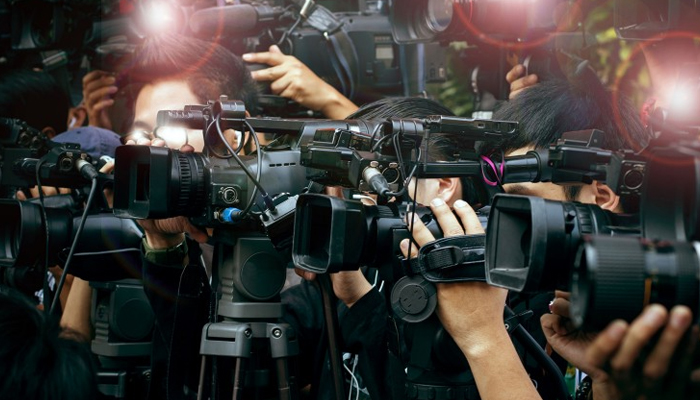
In recent years, the safety of journalists in South Asia has come under severe threat, with numerous instances of violence, persecution, and even murder. In this collaborative effort from Pakistan, India, and Sri Lanka, we will outline the problems faced by journalists belonging to minority groups.
On March 18, 2021, Ajay Lalwani, a local news correspondent for the Urdu-language Daily Puchano, was sitting in a barber shop in the Salehpat area of Sukkur. Two motorcycles and a car with four passengers drove by and opened fire, striking Lalwani in the stomach, arm, and knee. He was taken to Civil Hospital in Sukkur, where he later died due to blood loss.
Naresh Kumar, a prime witness in the case, subsequently died in a road accident considered suspicious and potentially linked to the accused in Ajay's murder. Ajay Lalwani, a Hindu journalist, was known for exposing the deeds of influential local leaders.
Similarly, in Sri Lanka, where the minority Tamil-speaking community resides in the North East, numerous journalists have fallen victim to murder or disappearance.
The 'Committee to Protect Journalists, an organisation advocating for journalists based in the United States, has reported that 25 journalists lost their lives during the civil war, particularly between 1992 and 2022.
In India also, authorities are increasingly targeting journalists and online critics for their criticism of government policies and practices, including prosecuting them under counterterrorism and sedition laws, coupled with a broader crackdown on dissent and no group is more vulnerable than Muslim journalists.
Recently, the number of journalists charged under draconian laws or different sections is an indication of the perilous state of free speech in India.
The persecution of journalists grew by more than four times in the Modi years. According to data collected by the Committee to Protect Journalists, 36 journalists were imprisoned in India between 2014 and 2023. During the UPA years, this figure stood at eight.
The latest Press Freedom Index has also revealed concerning trends for South Asian countries, including India, Sri Lanka, and Pakistan, indicating a significant decline in press freedom levels.
Sri Lanka, for instance, saw a steep drop from its previous position of 135 in last year's Reporters Without Borders (RFS) report to a worrisome 150 within just one year.
Similarly, India's rank stands at 159 out of 180 countries in the Press Freedom Index, highlighting ongoing challenges in the media landscape. Pakistan follows closely behind at number 152.
These rankings shed light on the obstacles faced by journalists in the region. Journalists in these countries often encounter a myriad of difficulties, including threats, censorship, legal hurdles, and physical as well as mental challenges. Tragically, some journalists have even lost their lives while carrying out their professional duties.
It is noteworthy that these challenges are not limited to any specific group of journalists but are pervasive across the profession. However, journalists belonging to minority groups face additional hurdles and are particularly vulnerable to heightened risks and difficulties.
'Terrorist' journalists
“There are two cases against me, one being the Unlawful Activities Prevention Act (UAPA) and the other is the Prevention of Money Laundering Act (PMLA) case. I have a charge sheet of 5,000 pages and it’s been almost 3-4 years that I haven’t even received my charge sheet. There are only allegations against me and no evidence has been found. Still, my job, health, finance, and everything else suffers,” says Siddique Kappan, a journalist from India’s Kerala who was arrested in October 2020 on his way to Hathras and was released on bail in February 2023 after more than two years following his arrest.
Similarly, K Kumanan, a journalist from the Mullaitivu district of Sri Lanka says, “for a prolonged period, we've been unjustly labelled as terrorists. Whenever we report for the rights of the Tamil people, we're unfairly branded as such. Consequently, many journalists have suffered tragic fates, including murder, abduction, and forced disappearance. Even today, such perceptions persist about us. We continue to be categorised within the general stereotype of terrorists, seen as undesirable elements by the state, perceived as accomplices, and even as instigators of terrorist activities. We are called for investigation under the Prevention of Terrorism Act and have become a new normal."
Similar to Sri Lanka’s Prevention of Terrorism Act India has Unlawful Activities (Prevention) Act. Meer Faisal, a 23-years journalist tells how Tripura Police booked 102 social media handles for allegedly posting content to disturb communal harmony under the UAPA.
“Many of us were booked for raising critical questions over institutionalised planned violence and there was no fact-check on which report I was booked. It was just because we were highlighting the matter at that time. Currently, there is a stay on my case," says Faisal.
In India UAPA is used against journalists who seek to investigate and report on a range of issues, it seeks to criminalise their legitimate work and stigmatise them as “terrorists” as well as having a chilling effect on the professional at large.
False cases to silence dissent
Shams Tabrez Qasmi, the editor-in-chief of the multilingual digital media platform, ‘Millat Times’ has been booked for tweeting videos of the communal clashes in the Indian state of Uttar Pradesh’s Kanpur in 2022 and no written notice has been sent to him yet. He also mentions his colleagues who have suffered harassment, abuse, and FIRs because of their Muslim identity.
In 2017, Zakir Ali Tyagi was arrested and spent 42 days in jail for a case registered against him under the IT Act over two of his social media posts on Facebook against Uttar Pradesh Chief Minister Yogi Adityanath. Later in 2020, he faced another FIR filed against him by a person claiming to be a farmer in Aminabad who had alleged an instance of cow slaughter in his field.
“I was being targeted repeatedly for doing my work and I had no connection to cow slaughtering. They have not found any evidence to this date against me which supports any claims,” Tyagi said.
Meanwhile, the arrest of a fact-checking Indian website Alt News's co-founder, Mohammad Zubair by the Delhi police in June 2023. The police alleged that a 2018 tweet by the fat-checker “hurt religious sentiments’. In July, fresh charges of criminal conspiracy, destruction of evidence, and foreign funding were added to the case.
While talking to a media outlet, Zubair says, “A Muslim man asking for accountability and working as a journalist is not a crime. I have to tell my younger colleagues that their work matters, and bearing witness to horrors that would otherwise be forgotten is not a crime. You should be present on social media and write your own stories. Don't let the propaganda around you go unchallenged. If every district has an individual who can fact-check, flag hate speech, and challenge the propaganda of the godi media channels, things will ultimately get better.”
Religious fundamentalism vs journalism
Durainayagam Sanjeevan, a journalist from Trincomalee district, explains, "When we cover religious matters, we confront threats from religious fundamentalists. Buddhist monks often clash with us and resort to violence, particularly when we report on unlawful encroachment in the name of Buddhism. They exert influence over our reporting, dictating what should and shouldn't be covered. When we resist this control and report, we face police investigations and threats, accusing us of causing racial tensions."
In the northern and eastern parts of Sri Lanka, the native lands of the Tamils, where Hindu temples are located, are grabbed in the name of archaeology, and Buddhist temples are constructed afterwards.
Also, there are incidents where the majority forcefully takes over the native lands of the minority people. Such incidents are taking place, especially in Vedukkunaari Malai Athi Sivan Myamar temple in Vavuniya, Kurundurmalai Temple in Mullaitivu, Thirukoneswaram in Trincomalee, Arismalai, and Thaiitti in Jaffna.
“Buddhistisation is currently underway in the North and East. It is an act of deliberate demographic change. Buddhist temples are built in Tamil areas. With the support of government departments such as the Forest Resources Department, Archaeology Department, Army, and Police, the Buddhist priest acts as a strongman and carries out all the activities there. When we report such issues, we are often depicted as instigating religious tension, with accusations that we are challenging the rights of Sinhala Buddhists to practice their faith."
"We have been arrested, assaulted, threatened, photographed, and threatened. As a person who has faced all kinds of threats, I was threatened with arrest when I went to report on the protest in 2022, and in 2019, when I went to report on the Buddhist conversion at Neeraviyyadi Pilliyar Temple, the police officer attacked me and knocked down my camera such threats have happened to all minority journalists like me in the North-East," journalist K Kumanan says.
On April 4, 2022, during an event called the 'Hindu Mahapanchayat' organised in India's national capital, New Delhi, five journalists, including four Muslim reporters, were allegedly beaten up by a right-wing mob.
Recalling the horror of that day, Meer Faisal says, "People surrounded me, snatched my camera, and beat me up. Somehow, the Delhi police rescued me and the other journalists. I was beaten up because of my identity. Somebody came to me and asked my name. When I told them, they called me '‘Jihadi.' We face such difficulties. So, if there is a communal issue or riot, it becomes really difficult to report from such areas because, in those times, it doesn't matter whether you are a journalist or not; only religion matters to them."
Online censorship
"The latest incident happened the last year when my Twitter account was withheld in India, without giving a proper reason. Then, I wrote an email to the IT Ministry and they gave the reason that I was spreading hatred against one community," says Meer Faisal.
He asserted further stating, “I had a Twitter which had a very good reach due to which I was able to reach out to more people on whatever fake narrative and propaganda was created against Muslims. The biggest weapon for me was Twitter because through it I was able to counter their propaganda and show them the ground reality. But, after my Twitter account was withheld, I created another account but it doesn’t have that many followers to be able to reach out to more people.”
Shams Tabrez Qasmi says that Facebook deleted the official page of Millat Times in September 2021 without giving any notice/reason. The page had more than one million followers. Also, Millat Times’ YouTube channel has been previously put on a 90-day ban after the outlet published a news video on protests in Maharashtra against COVID-19 lockdown.
“YouTube has deleted our videos even before. One was a story about the mob lynching of a Muslim man over allegations of eating beef, and another was on the Delhi riots [of February 2020]. The riots were ugly and we had attempted to show its brutality as it is. But it was deleted,” he added.
In a democracy, journalists are being silenced due to their reportage and commentary on important issues and the democratic rights of citizens. The Modi government's legislation to regulate the internet has not been received well by India’s digital media. The Information Technology (Intermediary Guidelines and Digital Media Ethics Code) Rules, 2021, opens up digital media to discretionary powers of the government, including censorship.
Due to the government's tight control on the media in Indian Illegally occupied Jammu and Kashmir, the situation of journalists in the predominantly Muslim region has sharply declined since the government in August 2019 repealed Article 370 and 35a of the Indian Constitution, which gave the occupied region significant autonomy.
In 2021, India had the highest number of internet shutdowns with 106 incidents in the country, 86 were in Indian Illegally Occupied Jammu and Kashmir (IIOJK), which lasted 552 days. It recounts the restrictions and challenges faced by Kashmiri journalists as they were denied access to information, and local journalists were unable to gather, verify, or disseminate news.
In Manipur in northeast India, which was reeling under a violent ethnic conflict from May 2023, the internet was shut down for seven months and continues to be patchy in designated areas.
Purportedly a measure to curb disinformation and the circulation of inflammatory videos and messages on social media, particularly WhatsApp, it has also effectively prevented journalists from verifying information and publishing credible news.
The Modi years have also been marked by government surveillance and the use of spyware against journalists, spiked stories, income tax “surveys” on newsrooms, and intimidating morning raids at the homes of young journalists.
Independent news outlets are being criminalised for critical reporting and journalists and their organisation are hounded by the authorities for doing their job.
Shams Tabrez, the Editor-in-Chief of Millat Times said that there is a risk of his YouTube or Facebook channels being banned anytime soon. I received notice several times. I got the first notice in 2018 which asked us to delete the video. But, we didn’t do it as our story was reality and truth from the ground, he said.
Journalism has been criminalised
In today's world, if you speak out for justice, a troll army will target you regardless of your name. However, if you have a Muslim name, the first thing you are advised to do is to go to Pakistan, says Ziya Us Salam, a senior journalist, and author of books like Lynch Files, Being Muslim in Hindu India, Madrasas in the Age of Islamophobia, and Of Saffron Flags and Skullcaps.
He further adds, “There has been a concerted attempt at the marginalisation of minorities in general and Muslims in particular. Being Muslim in many circles gives you a free pass to do whatever you want to do with Muslims, you won’t be held accountable. This has been happening post-2019 in India. Before 2019, there were lynchings of Muslims who were allegedly involved in cow slaughter or the transportation of cattle for possible slaughter. But post 2019, Muslims are being attacked simply for being Muslim. Minorities are the direct victims of Hindutva politics. Wherever the BJP is in power, minorities suffer. When the BJP does well, Muslim representation in Parliament diminishes. When BJP and its sister organisations do well politically, minorities suffer, not just Muslims but Christians as well.”
“In 2014, when Narendra Modi came to power, he raised the slogan ‘Sabka Saath, Sabka Vikas.’ We had 23 Muslim MPs, which was as low as we had at the time of Indian independence when we had 21, but the population was much less then.
In 2022, for the first time, there was not a single Muslim minister in the Union Cabinet. There was not a single Muslim MP in the BJP in the Lok Sabha or the Rajya Sabha. On one hand, BJP says ‘Sabka Saath, Sabka Vikas,’ and on the other hand, there is not a single representation of India's biggest minority group.”
An Independent Indian journalist Zakir Ali Tyagi shares his thoughts on the current situation of journalism in India, He says, “For Muslim journalists, writing has now become like walking on a double-edged sword. If we want to write, we have to walk a difficult road. That is why some journalists have changed their field while there has also been an increase in the numbers of people choosing journalism as their professional field.”
Meanwhile, the homegrown journalists have had it worse, eight are in jail including Kashmir journalist Aasif Sultan, who had been jailed since 2018 and secured bail in the UAPA case in August 2022. Also, occupied Kashmir’s Sajad Gul has been in jail since 2022, Jharkhand reporter Rupesh Kumar Singh since 2022, Kashmiri reporters Irfan Mehraj and Majid Hyderi since 2023, and Punjab independent journalist Rajinder Singh Taggar was arrested on March 20.
Newsclick founder Prabir Purkayastha has been in jail since 2023 and is now out on bail.
Purkayastha’s arrest, notably, involved raids across Newsclick employees’ houses and workplaces, placing a target on the backs of all individuals who had dared to be associated with the site.
Also, BBC offices in India have been raided by tax department officials, just weeks after the release of a documentary critical of the prime minister, Narendra Modi, which was later blocked by the government.
The editor of IFJ South Asia Press Freedom Report, Laxmi Murthy highlights how Pakistan set a global precedent by enacting specialised laws aimed at safeguarding journalists.
“The Pakistan government introduced the Sindh Protection of Journalists and other Media Practitioners Act 2021, swiftly followed by the National Assembly passing the Protection of Journalists and Media Professionals Act 2021. The coming together of these outlets in the 26-member Digital Media Alliance of Pakistan (DigiMAP), represents a consolidation of the digital news media business and a healthy challenge for Pakistan's legacy media," added Laxmi Murthy.
Lack of funding for independent media
There is often a lack of funding and financing for independent media which forces them to turn to bigger groups, such as larger media conglomerates, government, or political parties, to support their economic viability resulting in a lack of editorial independence, excessive concentration of media ownership and the unfair and non-transparent distribution of public subsidies.
Advertisements are the main source of revenue for India’s news industry. Government data shows that between 2014 and 2017, the Modi government hiked advertising in print and television media, compared to the second term of the UPA government. But since 2017, this figure has consistently fallen.
As the owner of an Indian organisation “The Observer Post’, Meer Faisal says, “I earn through freelancing for some international organisations, but it is very difficult to run it or to support myself because journalism is the most underpaid job. Journalists are paid very little and it becomes important to do some other work too.”
Also, journalists like Shams Tabrez find it difficult to develop their own app for their organisation ‘Millat Times’. He said, “If our YouTube or Facebook gets blocked, we will become absolutely zero. So, we have started focusing a little on the website, and also plan to develop our own app. It needs to be a professional application which requires a big budget, so we are not able to do it.”
Zakir Ali Tyagi suffers between the thought of leaving the field and speaking for the oppressed. He says, “Sometimes, I feel like moving away from this field of journalism. But, suddenly there is some other incident in front of you which forces you to write about it again. You are forced to speak again.”
The FCRA is a source for not-for-profit entities to receive foreign funds. However, in 2024, the Union Ministry of Home Affairs cancelled the Foreign Contribut on Regulation Act (FCRA) registration of the Centre for Policy Research (CPR). The action has had a debilitating impact on the institution’s ability to function by choking all sources of funding for the independent media, which is generally critical of the government.
Increasing inaccessibility for journalists
Narendra Modi, who was elected to power in 2014, has not appeared in a single press conference in India since he took office. Abroad, he has done so in at least two instances — during state visits to the UK in 2015 and the US in 2023.
The last press conference by an Indian PM was held a decade ago with 62 unscripted questions answered with 100+ journalists present. Congress leader Manish Tewari, who was the minister of information and broadcasting between 2012 and 2014, claimed former prime minister Manmohan Singh participated in 117 press conferences in his decade-long tenure.
Journalists have also faced obstacles in their access to Parliament and union ministries. For instance, in 2019, the Ministry of Finance introduced a system of prior appointments for journalists who wanted to meet officials. Since the COVID-19 pandemic, restrictions have been placed on the entry of journalists into parliament.
Foreign journalists in India have also faced a permit regime in the Modi years. In 2018 and 2019, respectively, they need permission from the Ministry of External Affairs and the Ministry of Home Affairs to report from occupied Kashmir and Assam. Their visas, permits, and access are increasingly rejected by Indian authorities.
Meer Faisal shares his experience while covering the Delhi riots, Shaheen Bagh Protest, and Hindu Mahapanchayat and says, “As a Muslim journalist, it is difficult to report incidents that have happened in the Hindu community. When you go to report a communal incident, people avoid talking about it to a journalist because of his Muslim identity.
In 2022, Ismat Ara was among 20 Muslim women journalists whose pictures and personal information were posted for a virtual “auction” by an online app called Bulli Bai, a derogatory term to describe Muslim women.
Ara filed a police complaint which led to the arrest of the app’s makers. She is often chased by a mob due to her Muslim identity and says, “I think it helps not to be visibly Muslim,” adding that she removed a picture of herself in a hijab on X after a BJP aide asked for her handle to check for “negative stories.”
Recently, a journalist Raghav Trivedi who works with the digital outlet Molitics, was beaten up and locked in a room allegedly by BJP workers while covering Union Home Minister Amit Shah's rally in Rae Bareli, Uttar Pradesh over a “clip” about women being paid to attend the rally. He said that the attackers used anti-Muslim slurs against him and called him “mullah (Muslim)” and “attanki (terrorist)’.
Dr Tauseef Ahmed, a retired professor of journalism from Pakistan, states that journalists with minority religious connections in Pakistan face difficulties when conducting investigative stories, as they are easily accused and subjected to caution and disruption in their professional work.
What should be done?
The CPU's India representative Kunal Majumder says that it is important for the journalist fraternity itself to really start focusing on their issues and their safety because India does not have a culture of safety for journalists. There is no conversation about how you keep your journalist safe.
Recently, CPJ’s Emergencies Response Team (ERT) has compiled a safety guide for journalists covering India’s election. The guide contains information for editors, reporters, and photojournalists on how to prepare for the election and how to mitigate digital, physical, and psychological risks.
He further says, “The fraternity itself has to take the responsibility of care towards their reporters and they have to be mindful of them and they have to implement a lot of preventive measures, which unfortunately at this point is completely missing out of Indian newsrooms.
But, once you start putting these preventive mechanisms in place, the number of journalists being protected will definitely go up.”
Muhammad Amin Anwar is a broadcast journalist based in Karachi. He works for Geo News and covers issues related to religious minorities, human rights, and the judiciary in the city.
V. Priyatharsan has been working as a journalist in Sri Lanka for over 15 years and is currently serving as an Assistant Editor at Express Newspapers Pvt Ltd.
Rohit Upadhyay is a Journalist, Documentarian and YouTuber known for his in-depth reports on environmental issues, public health, and minority rights.

